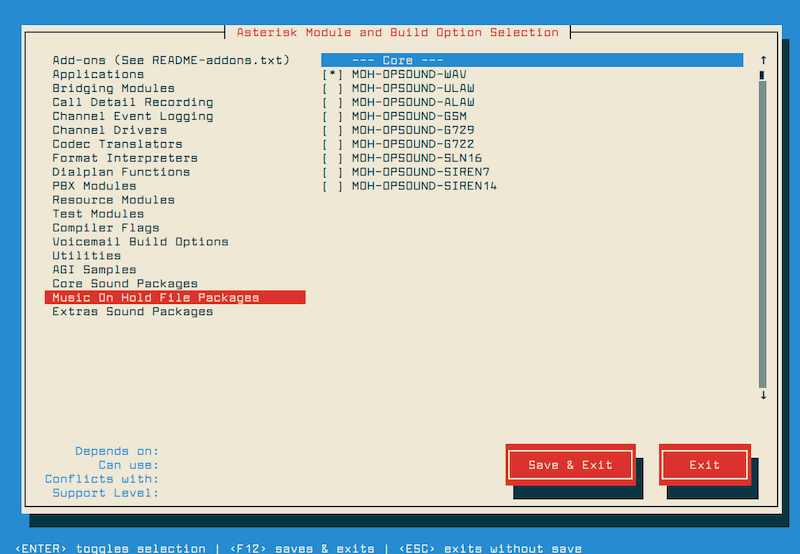How To Install Asterisk on AlmaLinux 10

Installing Asterisk on AlmaLinux represents a crucial step for organizations seeking robust, enterprise-grade VoIP communication solutions. As businesses increasingly adopt Voice over Internet Protocol (VoIP) technologies, understanding how to properly deploy Asterisk on stable Linux distributions becomes essential for telecommunications infrastructure success.
Asterisk stands as the world’s leading open-source PBX framework, powering millions of telephony systems globally. This comprehensive telecommunications platform enables organizations to build sophisticated voice communication networks, from simple office phone systems to complex call centers and conferencing solutions.
AlmaLinux emerged as a premier Red Hat Enterprise Linux (RHEL) compatible distribution, offering enterprise stability without licensing costs. While AlmaLinux 10 awaits official release, this guide focuses on AlmaLinux 9.x with forward-compatibility considerations for future versions.
This detailed tutorial provides everything needed to successfully install and configure Asterisk on AlmaLinux systems. You’ll learn essential prerequisites, dependency management, compilation processes, security configurations, and troubleshooting techniques that ensure reliable VoIP deployment.
Prerequisites and System Requirements
Before beginning the Asterisk installation process, ensure your AlmaLinux system meets specific hardware and software requirements for optimal performance.
Hardware Requirements
Minimum specifications include 2GB RAM, dual-core processor, and 20GB available storage space. However, production environments demand significantly more resources. Recommended specifications encompass 8GB RAM, quad-core processor, and 100GB SSD storage for handling concurrent calls effectively.
Consider your expected call volume when planning hardware resources. Each simultaneous call typically consumes 64-100 KB/s bandwidth and modest CPU resources. Enterprise deployments often require dedicated servers with redundant power supplies and network interfaces.
Software Requirements
Start with a fresh AlmaLinux 9.x installation to avoid potential conflicts with existing packages. Ensure you have root or sudo access for system modifications. Internet connectivity remains essential for downloading source code, dependencies, and security updates.
Network Considerations
Configure a static IP address for your Asterisk server to ensure consistent connectivity. Document required network ports: SIP (5060/5061) for signaling and RTP (10000-20000) for media streams. Plan firewall rules accordingly to allow proper VoIP traffic flow.
Knowledge Prerequisites
Basic Linux command-line proficiency helps navigate installation procedures smoothly. Understanding networking concepts like NAT, port forwarding, and routing proves invaluable. VoIP fundamentals including SIP protocols and codec basics enhance troubleshooting capabilities.
System Preparation and Initial Setup
Proper system preparation establishes the foundation for successful Asterisk deployment. These preliminary steps ensure your AlmaLinux environment supports reliable VoIP operations.
System Updates and Repository Configuration
Begin by updating your system packages to the latest versions:
sudo dnf update -y
sudo dnf install epel-release -y
sudo dnf config-manager --set-enabled powertools
sudo dnf groupinstall "Development Tools" -yThe EPEL repository provides additional packages not available in standard AlmaLinux repositories. Development Tools group includes essential compilation utilities required for building Asterisk from source code.
Hostname Configuration
Set an appropriate hostname for your Asterisk server to facilitate network identification:
sudo hostnamectl set-hostname asterisk.yourdomain.comEdit the /etc/hosts file to include proper hostname resolution:
echo "127.0.0.1 asterisk.yourdomain.com asterisk" >> /etc/hostsProper hostname configuration prevents various SIP-related issues and improves system logging clarity.
SELinux Configuration
SELinux (Security-Enhanced Linux) can interfere with Asterisk operations. While disabling SELinux reduces security, it simplifies initial installation:
sudo setenforce 0
sudo sed -i 's/\(^SELINUX=\).*/\SELINUX=permissive/' /etc/selinux/configFor production environments, consider configuring SELinux policies specifically for Asterisk rather than disabling the security framework entirely.
Timezone Setup
Configure accurate timezone settings for proper call logging and scheduling:
sudo timedatectl set-timezone America/New_York
sudo timedatectl set-ntp trueAccurate timestamps prove crucial for call detail records (CDR) and troubleshooting network issues.
Installing Dependencies and Prerequisites
Asterisk compilation requires numerous development libraries and tools. Installing these dependencies correctly prevents compilation errors and ensures full functionality.
Essential Development Tools
Install comprehensive development packages needed for compiling Asterisk:
sudo dnf install git wget vim net-tools sqlite-devel psmisc ncurses-devel \
libtermcap-devel newt-devel libxml2-devel libtiff-devel gtk2-devel \
libtool libuuid-devel subversion kernel-devel crontabs cronie-anacron \
libedit libedit-devel openssl-devel libsrtp-devel -yThese packages provide essential libraries for audio processing, database connectivity, encryption, and user interface components.
PJSIP Installation
PJSIP serves as Asterisk’s modern SIP channel driver, offering superior performance compared to legacy chan_sip. Install PJSIP from source:
cd /usr/src
sudo git clone https://github.com/pjsip/pjproject.git
cd pjproject
sudo ./configure CFLAGS="-DNDEBUG -DPJ_HAS_IPV6=1" --prefix=/usr \
--libdir=/usr/lib64 --enable-shared --disable-video --disable-sound \
--disable-opencore-amr
sudo make dep && sudo make
sudo make install
sudo ldconfigThe PJSIP library provides advanced SIP functionality including better NAT handling and improved audio quality.
Additional Utilities
Install supplementary tools that enhance Asterisk administration:
sudo dnf install tcpdump wireshark-cli nmap htop iotop -yThese network diagnostic tools prove invaluable for troubleshooting VoIP connectivity issues and monitoring system performance.
Downloading and Compiling Asterisk
The Asterisk compilation process transforms source code into executable binaries optimized for your specific system configuration.
Source Code Acquisition
Download the latest stable Asterisk release from the official repository:
cd /usr/src
sudo wget http://downloads.asterisk.org/pub/telephony/asterisk/asterisk-22-current.tar.gz
sudo tar xvfz asterisk-22-current.tar.gz
cd asterisk-21*/Asterisk 22 represents the latest Long Term Support (LTS) version, providing stability and extended security updates.
Dependency Installation Script
Asterisk includes a convenient script for installing distribution-specific dependencies:
sudo contrib/scripts/install_prereq installThis script automatically detects your distribution and installs appropriate packages. Upon completion, you should see a success message confirming all prerequisites are installed.
Configuration Process
Configure the build environment with optimized settings for AlmaLinux:
sudo ./configure --libdir=/usr/lib64 --with-jansson-bundled=yesThe --libdir=/usr/lib64 parameter ensures proper library placement on 64-bit systems. Bundled Jansson provides JSON parsing capabilities required for modern Asterisk features.
Successful configuration displays the iconic Asterisk ASCII art followed by system information confirming proper detection of your AlmaLinux environment.
Module Selection
Use menuselect to customize which Asterisk modules to compile:
sudo make menuselectNavigate through the interface to select desired modules. For basic PBX functionality, ensure these modules are enabled:
- chan_pjsip (SIP channel driver)
- res_pjsip (SIP resource modules)
- app_dial (dialing application)
- app_voicemail (voicemail system)
Save your configuration and exit menuselect.

Compilation Process
Compile Asterisk using multiple CPU cores for faster builds:
sudo make -j$(nproc)Compilation time varies based on system specifications and selected modules. Modern systems typically complete compilation within 10-15 minutes.
Monitor the compilation output for errors. Warning messages are generally acceptable, but error messages require attention and resolution.
Installation Commands
Install the compiled Asterisk binaries and supporting files:
sudo make install
sudo make samples
sudo make basic-pbx
sudo make config
sudo ldconfigThese commands install core binaries, sample configurations, basic PBX dialplan, and systemd service files respectively.
User Configuration and Security Setup
Security-conscious deployment requires running Asterisk as a dedicated non-privileged user rather than root, significantly reducing potential security risks.
Creating Asterisk User and Group
Create a dedicated system user for running Asterisk services:
sudo groupadd asterisk
sudo useradd -r -d /var/lib/asterisk -g asterisk asterisk
sudo usermod -aG audio,dialout asteriskThe asterisk user belongs to audio and dialout groups, providing necessary permissions for sound devices and serial communications.
Directory Permissions Configuration
Set appropriate ownership for all Asterisk-related directories:
sudo chown -R asterisk:asterisk /etc/asterisk
sudo chown -R asterisk:asterisk /var/{lib,log,spool}/asterisk
sudo chown -R asterisk:asterisk /usr/lib64/asterisk
sudo chown asterisk:asterisk /var/run/asteriskProper permissions prevent unauthorized access to configuration files and ensure Asterisk can write log files and temporary data.
Configuration File Security
Modify the main Asterisk configuration to use the dedicated user:
sudo sed -i 's/^;runuser = asterisk/runuser = asterisk/' /etc/asterisk/asterisk.conf
sudo sed -i 's/^;rungroup = asterisk/rungroup = asterisk/' /etc/asterisk/asterisk.confEdit /etc/sysconfig/asterisk to specify the user:
echo 'AST_USER="asterisk"' | sudo tee -a /etc/sysconfig/asterisk
echo 'AST_GROUP="asterisk"' | sudo tee -a /etc/sysconfig/asteriskThese modifications ensure Asterisk starts with appropriate privileges while maintaining system security.
Service Configuration and Management
Systemd integration provides reliable service management for Asterisk, including automatic startup, process monitoring, and clean shutdown procedures.
Systemd Service Configuration
The installation process creates a systemd service file at /usr/lib/systemd/system/asterisk.service. Verify the service configuration:
sudo systemctl daemon-reload
sudo systemctl enable asteriskEnabling the service ensures Asterisk starts automatically during system boot, maintaining VoIP availability.
Service Operations
Start the Asterisk service and verify proper operation:
sudo systemctl start asterisk
sudo systemctl status asteriskThe status command displays service health information including process ID, memory usage, and recent log entries.
Service Management Commands
Master these essential service management commands:
# Start Asterisk service
sudo systemctl start asterisk
# Stop Asterisk service
sudo systemctl stop asterisk
# Restart Asterisk service
sudo systemctl restart asterisk
# Check service status
sudo systemctl status asterisk
# View service logs
sudo journalctl -u asterisk -fService logs provide valuable troubleshooting information when issues arise.
Logging Configuration
Configure appropriate logging levels in /etc/asterisk/logger.conf:
sudo cp /etc/asterisk/logger.conf.sample /etc/asterisk/logger.confAdjust logging settings based on your troubleshooting needs and available disk space.
Firewall and Network Configuration
Network security configuration balances VoIP functionality requirements with protection against unauthorized access and potential attacks.
Firewall Rules Setup
Configure firewalld to allow necessary VoIP traffic:
sudo firewall-cmd --permanent --add-port=5060/udp
sudo firewall-cmd --permanent --add-port=5061/tcp
sudo firewall-cmd --permanent --add-port=10000-20000/udp
sudo firewall-cmd --reloadPort 5060 handles SIP signaling traffic, while the RTP port range (10000-20000) carries actual voice data.
Advanced Firewall Configuration
For enhanced security, restrict access to specific networks:
sudo firewall-cmd --permanent --add-rich-rule='rule family="ipv4" source address="192.168.1.0/24" port protocol="udp" port="5060" accept'
sudo firewall-cmd --reloadThis configuration limits SIP access to devices within your local network subnet.
NAT Configuration Considerations
If your Asterisk server operates behind NAT, configure appropriate settings in /etc/asterisk/pjsip.conf:
[transport-udp]
type=transport
protocol=udp
bind=0.0.0.0:5060
external_media_address=YOUR_PUBLIC_IP
external_signaling_address=YOUR_PUBLIC_IPNAT configuration prevents common VoIP issues including one-way audio and registration failures.
Testing and Verification
Comprehensive testing validates your Asterisk installation and identifies potential issues before production deployment.
Service Verification
Access the Asterisk CLI to verify proper installation:
sudo asterisk -rvvThe Asterisk CLI provides direct access to the running system. Successful connection displays the Asterisk version and command prompt.
Basic Functionality Tests
Execute these CLI commands to verify core functionality:
asterisk*CLI> core show uptime
asterisk*CLI> module show
asterisk*CLI> core show channels
asterisk*CLI> dialplan showThese commands display system uptime, loaded modules, active channels, and configured dialplan respectively.
Network Connectivity Tests
Verify network services are listening correctly:
sudo netstat -tulpn | grep asterisk
sudo ss -tulpn | grep asteriskNetwork connectivity verification ensures SIP and RTP ports are properly bound and accessible.
Performance Monitoring
Monitor system resources during operation:
top -p $(pgrep asterisk)
sudo iotop -p $(pgrep asterisk)Resource monitoring helps identify performance bottlenecks and capacity planning requirements.
Troubleshooting Common Issues
Effective troubleshooting requires systematic approaches to identify and resolve common Asterisk installation and configuration problems.
Installation Problems
Compilation errors often result from missing dependencies or incorrect compiler flags. Review the complete error output and install missing packages:
sudo dnf search devel | grep missing-package-name
sudo dnf install missing-package-develPermission issues frequently occur when files are created with incorrect ownership. Verify all Asterisk directories belong to the asterisk user.
Service Startup Issues
Service failures typically stem from configuration errors or permission problems. Examine detailed logs:
sudo journalctl -u asterisk --no-pager
sudo tail -f /var/log/asterisk/messagesCommon startup problems include binding to privileged ports, missing configuration files, and SELinux policy violations.
Network and Connectivity Problems
SIP registration failures often indicate firewall issues or NAT misconfigurations. Use packet capture tools for analysis:
sudo tcpdump -i any -n port 5060One-way audio problems frequently result from RTP port blocking or incorrect NAT settings. Verify bidirectional RTP traffic flow.
Performance and Stability Issues
Memory leaks and CPU spikes can indicate module conflicts or configuration problems. Monitor resource usage over time:
watch "ps aux | grep asterisk"Review call detail records and system logs to identify patterns correlating with performance issues.
Next Steps and Best Practices
Production deployment requires additional configuration steps beyond basic installation to ensure reliable, secure VoIP operations.
Basic Configuration Setup
Create essential dialplan entries in /etc/asterisk/extensions.conf:
[internal]
exten => 100,1,Dial(PJSIP/user1)
exten => 101,1,Dial(PJSIP/user2)Configure SIP endpoints in /etc/asterisk/pjsip.conf for connecting phones and softphones.
Security Hardening
Implement additional security measures including:
- Regular security updates
- Strong authentication credentials
- Network access restrictions
- Intrusion detection systems
- Regular backup procedures
Integration and Scaling
Consider FreePBX integration for web-based management interfaces. Plan for horizontal scaling with multiple Asterisk servers for high-availability deployments.
Implement monitoring solutions like Nagios or Zabbix to track system health and performance metrics continuously.
Congratulations! You have successfully installed Asterisk. Thanks for using this tutorial for installing the Asterisk on your AlmaLinux OS 10 system. For additional help or useful information, we recommend you check the official Asterisk website.